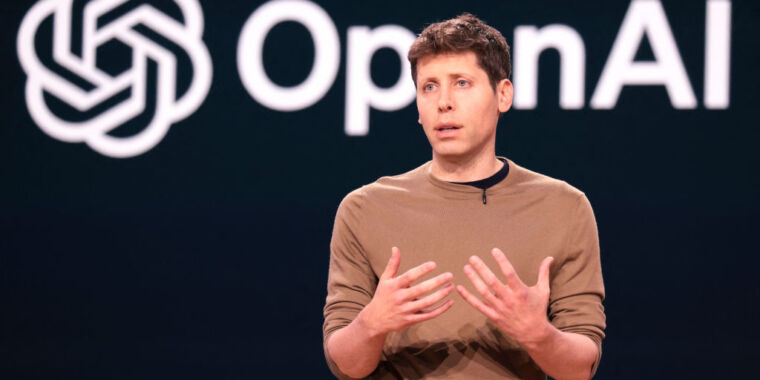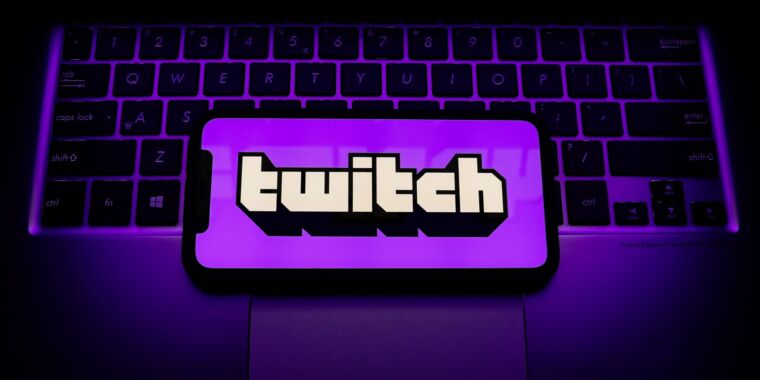Former and current OpenAI employees received a memo this week that the AI company hopes to end the most embarrassing scandal that Sam Altman has ever faced as OpenAI’s CEO.
The memo finally clarified for employees that OpenAI would not enforce a non-disparagement contract that employees since at least 2019 were pressured to sign within a week of termination or else risk losing their vested equity. For an OpenAI employee, that could mean losing millions for expressing even mild criticism about OpenAI’s work.
You can read the full memo below in a post on X (formerly Twitter) from Andrew Carr, a former OpenAI employee whose LinkedIn confirms that he left the company in 2021.
“I guess that settles that,” Carr wrote on X.
OpenAI faced a major public backlash when Vox revealed the unusually restrictive language in the non-disparagement clause last week after OpenAI co-founder and chief scientist Ilya Sutskever resigned, along with his superalignment team co-leader Jan Leike.
As questions swirled regarding these resignations, the former OpenAI staffers provided little explanation for why they suddenly quit. Sutskever basically wished OpenAI well, expressing confidence “that OpenAI will build AGI that is both safe and beneficial,” while Leike only offered two words: “I resigned.”
Amid an explosion of speculation about whether OpenAI was perhaps forcing out employees or doing dangerous or reckless AI work, some wondered if OpenAI’s non-disparagement agreement was keeping employees from warning the public about what was really going on at OpenAI.
According to Vox, employees had to sign the exit agreement within a week of quitting or else potentially lose millions in vested equity that could be worth more than their salaries. The extreme terms of the agreement were “fairly uncommon in Silicon Valley,” Vox found, allowing OpenAI to effectively censor former employees by requiring that they never criticize OpenAI for the rest of their lives.
“This is on me and one of the few times I’ve been genuinely embarrassed running OpenAI,” Altman posted on X, while claiming, “I did not know this was happening and I should have.”
Vox reporter Kelsey Piper called Altman’s apology “hollow,” noting that Altman had recently signed separation letters that seemed to “complicate” his claim that he was unaware of the harsh terms. Piper reviewed hundreds of pages of leaked OpenAI documents and reported that in addition to financially pressuring employees to quickly sign exit agreements, OpenAI also threatened to block employees from selling their equity.
Even requests for an extra week to review the separation agreement, which could afford the employees more time to seek legal counsel, were seemingly denied—”as recently as this spring,” Vox found.
“We want to make sure you understand that if you don’t sign, it could impact your equity,” an OpenAI representative wrote in an email to one departing employee. “That’s true for everyone, and we’re just doing things by the book.”
OpenAI Chief Strategy Officer Jason Kwon told Vox that the company began reconsidering revising this language about a month before the controversy hit.
“We are sorry for the distress this has caused great people who have worked hard for us,” Kwon told Vox. “We have been working to fix this as quickly as possible. We will work even harder to be better.”
Altman sided with OpenAI’s biggest critics, writing on X that the non-disparagement clause “should never have been something we had in any documents or communication.”
“Vested equity is vested equity, full stop,” Altman wrote.
These long-awaited updates make clear that OpenAI will never claw back vested equity if employees leave the company and then openly criticize its work (unless both parties sign a non-disparagement agreement). Prior to this week, some former employees feared steep financial retribution for sharing true feelings about the company.
One former employee, Daniel Kokotajlo, publicly posted that he refused to sign the exit agreement, even though he had no idea how to estimate how much his vested equity was worth. He guessed it represented “about 85 percent of my family’s net worth.”
And while Kokotajlo said that he wasn’t sure if the sacrifice was worth it, he still felt it was important to defend his right to speak up about the company.
“I wanted to retain my ability to criticize the company in the future,” Kokotajlo wrote.
Even mild criticism could seemingly cost employees, like Kokotajlo, who confirmed that he was leaving the company because he was “losing confidence” that OpenAI “would behave responsibly” when developing generative AI.
In OpenAI’s defense, the company confirmed that it had never enforced the exit agreements. But now, OpenAI’s spokesperson told CNBC, OpenAI is backtracking and “making important updates” to its “departure process” to eliminate any confusion the prior language caused.
“We have not and never will take away vested equity, even when people didn’t sign the departure documents,” OpenAI’s spokesperson said. “We’ll remove non-disparagement clauses from our standard departure paperwork, and we’ll release former employees from existing non-disparagement obligations unless the non-disparagement provision was mutual.”
The memo sent to current and former employees reassured everyone at OpenAI that “regardless of whether you executed the Agreement, we write to notify you that OpenAI has not canceled, and will not cancel, any Vested Units.”
“We’re incredibly sorry that we’re only changing this language now; it doesn’t reflect our values or the company we want to be,” OpenAI’s spokesperson said.




